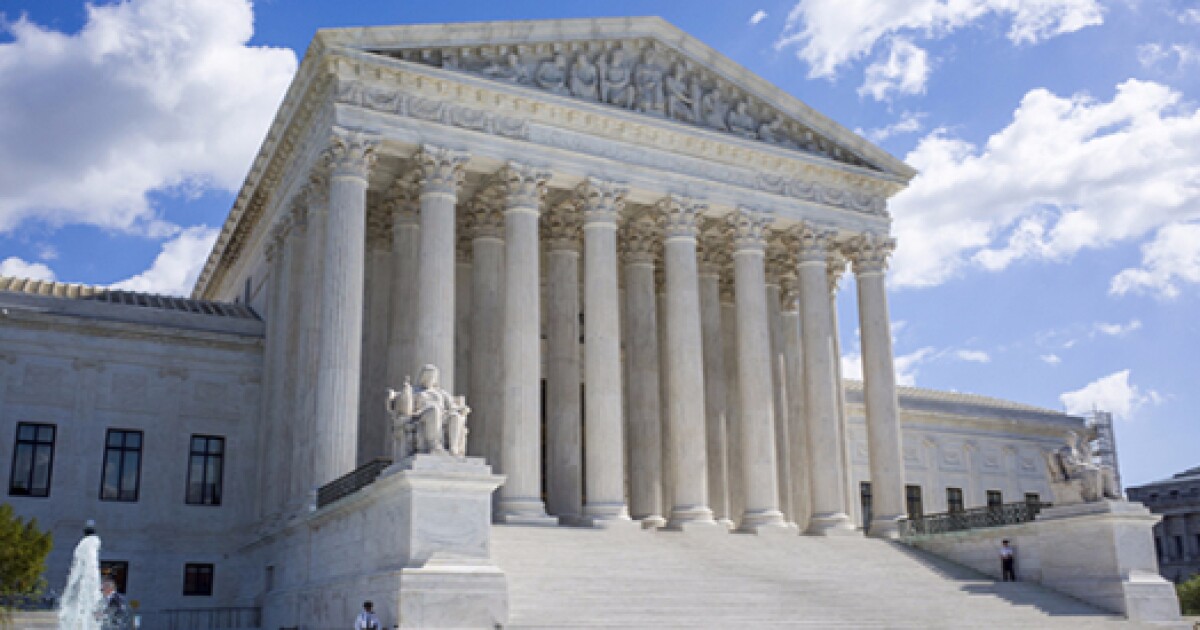Supreme Court declines to hear Ohio’s ARPA challenge
3 min read
The Supreme Court has, without comment, declined to hear Ohio’s challenge to the American Rescue Plan’s Offset Provision, which bars states from using COVID-19 relief money to offset reductions in tax revenue.
The decision not to take up the case, urged by the Treasury Department, is the second time this year that the nation’s highest court refused to wade into the ongoing dispute between a number of states challenging the provision and the Treasury Department enforcing the law, after Missouri’s challenge other states to take up Ohio’s lawsuit, most of which have ongoing lawsuits of their own, and that chorus has included representatives from Texas, Virginia, Idaho, Mississippi, Montana, Nebraska, New Hampshire, South Dakota and Utah and two think-tanks including the Buckeye Institute, which declared it will continue to fight for Ohio to be heard.
“The federal mandate unlawfully usurps power from the states over their taxing authority,” said David Tryon, director of litigation at The Buckeye Institute. “Despite the U.S. Supreme Court’s decision not to hear Ohio v. Yellen, there are other opportunities for the high court to reign in this sweeping usurpation of state policymaking power.”
“Justice Kavanaugh signaling that he would have heard the case is important. Justice Kavanaugh and his colleagues will have other opportunities to address the tax mandate and The Buckeye Institute will be there advocating tirelessly for the proper respect of state taxing authority.”
Ohio gained some traction in its initial battle against the restriction, with U.S. District Judge Douglas Cole saying that the tax mandate didn’t meet the legal standards that the Supreme Court previously established concerning the U.S. Constitution’s Spending Clause and how Congress imposes conditions on grants and states, ruling the language was too ambiguous.
But in the ensuing months, the Treasury Department issued the State and Local Fiscal Recovery Fund Final Rule, which gave further clarification on eligible uses for the pandemic related aid.
Ohio’s appeal was then taken up by the Sixth Circuit Court of Appeals in January 2022 and was quickly struck down.
“The Sixth Circuit held that Ohio’s challenge was moot,” Ohio said in its petition to the Supreme Court. “On that basis, it vacated the District Court’s judgment, which permanently enjoined the respondents from enforcing the Mandate against Ohio.”
But a glimmer of light showed for Ohio as the Sixth Circuit, presiding over both Tennessee and Kentucky’s challenge to the provision in a joint case, enjoined the Mandate’s enforcement against Tennessee after the state argued the mandate would unconstitutionally burden the state with compliance costs.
Ohio tried to align itself with the lower court’s decision in Tennessee in its writ certoriari to the Supreme Court, which was rejected this week. The Supreme Court could still take up some of the other challenges, including in West Virginia, Texas, Mississippi, Louisiana and Kentucky and Tennessee.
“All of these cases found the Biden Administration’s tax mandate to be unconstitutional, and it is likely that the Biden Administration will ask the U.S. Supreme Court to hear those cases,” the Buckeye Institute said.







